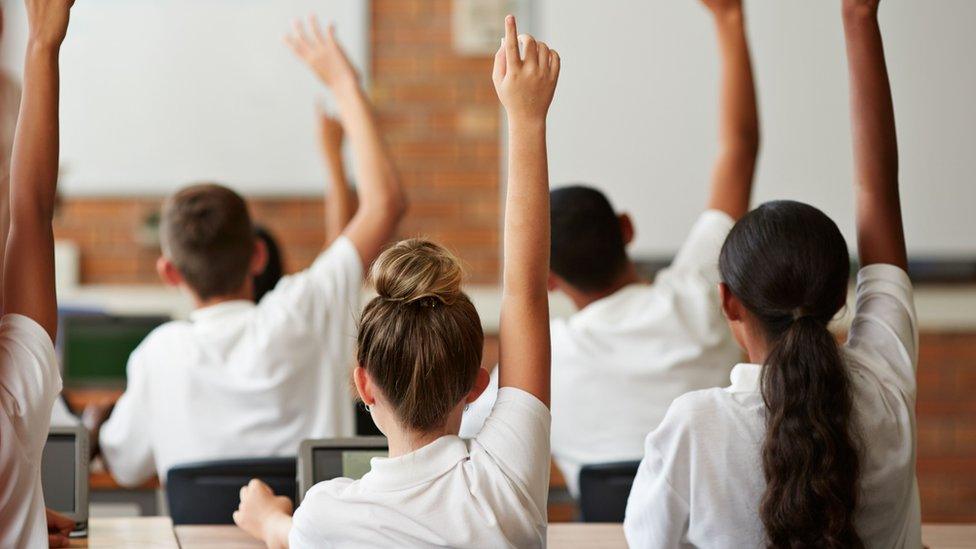Covid: Education 'should not be punchbag' in post-pandemic spending
- Published
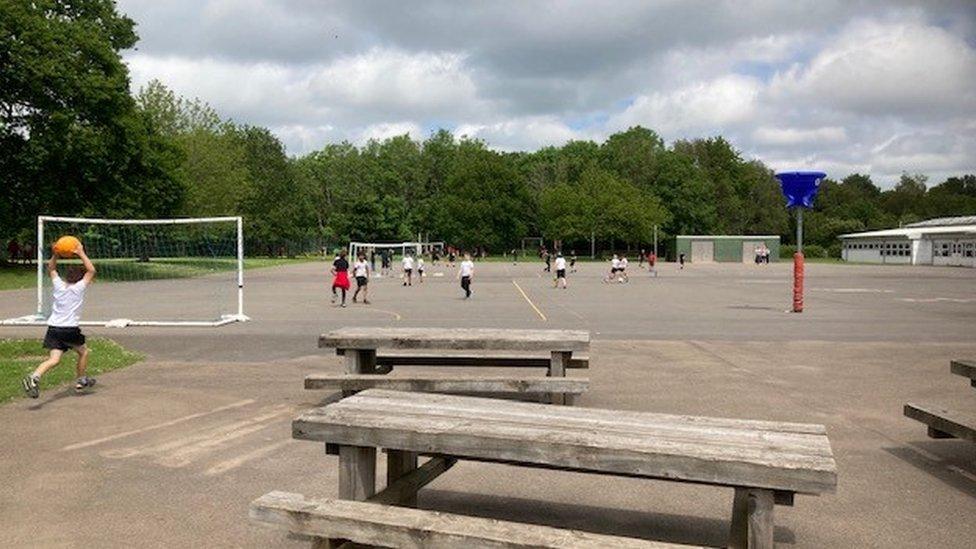
Teachers say literacy skills have been hit by the pandemic
Education should not be "the punchbag" that takes the financial hit as Wales recovers from the pandemic, a leading economist has said.
Prof Gerald Holtham said the Welsh government should focus resources on "supporting education" and young families.
He suggested a "one-off levy" could be introduced to raise capital for restoring the education system.
The Welsh government said it was providing over £150m of extra funding.
Prof Holtham, a former Welsh government adviser and a visiting professor at Cardiff Metropolitan University, said the "political pressures to spend on health are always very heavy" but spending on education was "particularly important" at the moment.
"Education is already a very big part of the budget, inevitably, but I think we can't let it get squeezed now, in order to keep increasing expenditure on health," he said.
"If we can increase expenditure on both, that's wonderful, but I don't think we can let education be the punchbag or the sponge that absorbs the pressure. We've got to give it priority...
"I think we ought to really be focusing on swinging our resources more into supporting education, supporting training, supporting early years, supporting young families," he said.
"If that means that we have to, over time, grow expenditure on social care and health a bit slower, I think we've got to bite the bullet - that's what we've got to do."

Prof Gerald Holtham suggested a "one-off levy" to raise capital for restoring the education system
Spending on health and social services combined accounted for more than half of the Welsh government's budget in 2019-20, whereas education made up about 21% of the total expenditure.
While Prof Holtham believes a longer term education strategy is required, he suggested a "one-off levy" next year was an option he would "certainly consider" to help teachers and pupils to catch up following the disruption to schooling.
How much will catch-up cost?
The Education Policy Institute has estimated £600m to £900m would be needed over three years to help children in Wales catch up on lost learning.
In England, the education recovery commissioner resigned, saying the UK government's funding for its plan fell short of what was needed.
What do teachers think?
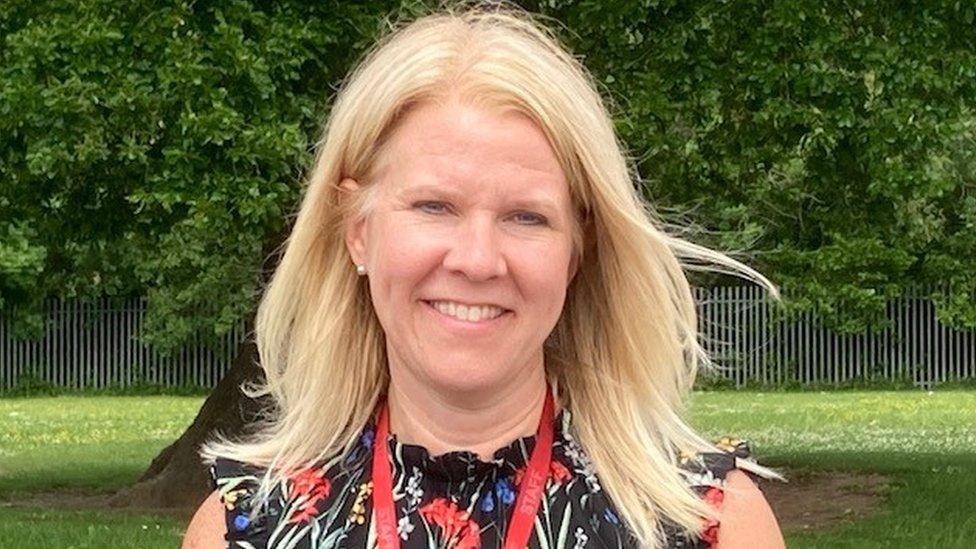
Teacher Vicki Creedon says it will be a long time before some children catch up
Vicki Creedon a reception class teacher at Ton-yr-Ywen Primary School in Cardiff, has seen the impact of the pandemic disruption on many of her pupils.
"We've noticed that the literacy skills have really been affected because in reception, learning is all through play, so you set things up, you've got the adults that facilitate the learning, but with the best will in the world that can't be done at home," she said.
She added that while "some children will catch up quicker than others", it will be "a long time" before some get up to speed.
"It's about - as a teacher - gauging which children are moving on, which ones you need to pull.
"But to be able to do that you need the facilities, you need the adults, you need the resources to be able to do it."
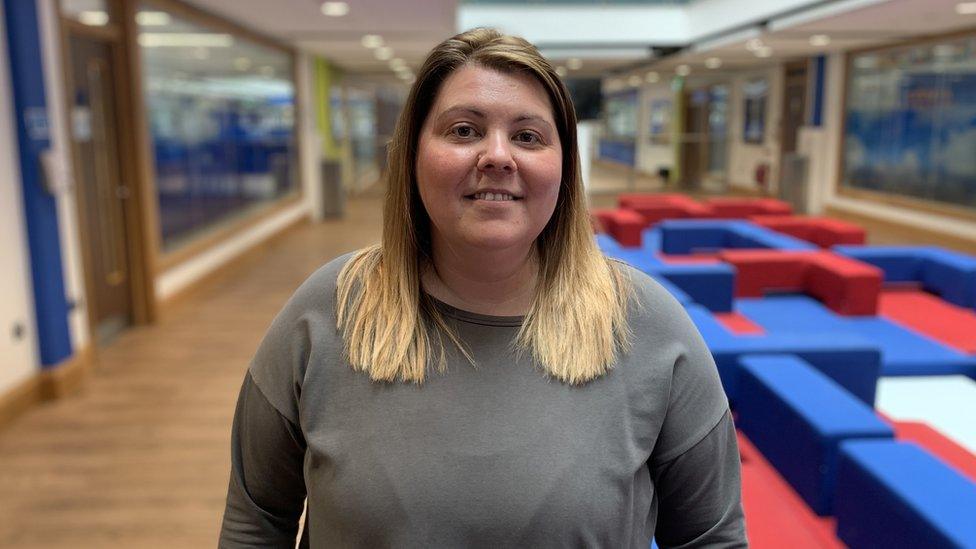
Teacher Hannah Ambler says the pandemic will have affected different schools in different ways
Teachers in secondary schools are facing similar issues.
"When they returned, we saw that pupils had lost a lot of confidence, particularly being around and in a school environment," said Hannah Ambler, head of year 11 at Ysgol Gymraeg Ystalyfera, in Neath Port Talbot.
The school has tried to increase opportunities to engage in speaking and listening activities with pupils, as many had lost confidence in communicating, particularly through the medium of Welsh.
"We have found that our catch-up needs are bespoke to our school - the impact of the pandemic will have affected different schools in different ways," she added.
"But most certainly, we would use the money in order to close any gaps that we feel need to be filled for our pupils."
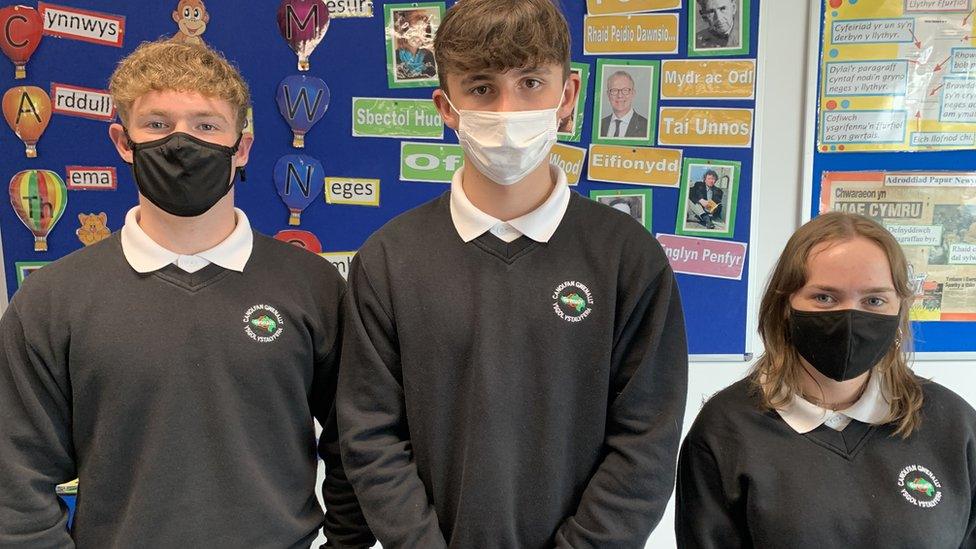
Year 12 pupils at Ysgol Gymraeg Ystalyfera say the last year has presented challenges
What do pupils think?
Sophie, a year 12 pupil at Ysgol Gymraeg Ystalyfera, said it had been a "complicated" 18 months.
"It's been just a lot to deal with, inside school and outside, and having to have to adapt to new learning ways online," she said.
She added that although some teaching during the summer might work, extending the school day would be detrimental.
"At the end of the day, you have to consider young people's mental health during this whole thing, which hasn't been the best," she said.
Sophie's classmate Rhodri said he struggled with learning from home.
"I haven't been able to communicate with my teacher as well, because when I'm in class I'm able to ask questions and get the answers and even ask other pupils as well, but online I haven't been able to do that," he said.
"It made me feel quite lonely and made me less motivated to do work."
Harry, also in year 12, found it hard to adapt to online learning initially. He said catching up with any lost education would mean teachers having to give more time to pupils.
"I think it's just teachers investing time to us, treating us less like robots," he said.
"I think they need to take into account our feelings and how hard these last 18 months have been.
"Maybe a couple of hours a week to finish work we haven't finished would be a good idea.
"In sixth form we have a lot of free lessons to finish the work, I feel sorry for the years below because they have a full day and don't have free lessons."
The Welsh government said: "Supporting our learners throughout and after the pandemic is a top priority."
It added it was providing over £150m of extra funding for learning, which included recruiting more than 1,800 teachers and school staff as part of the programme to "recruit, recover and raise standards" in education.
Related topics
- Published18 March 2021
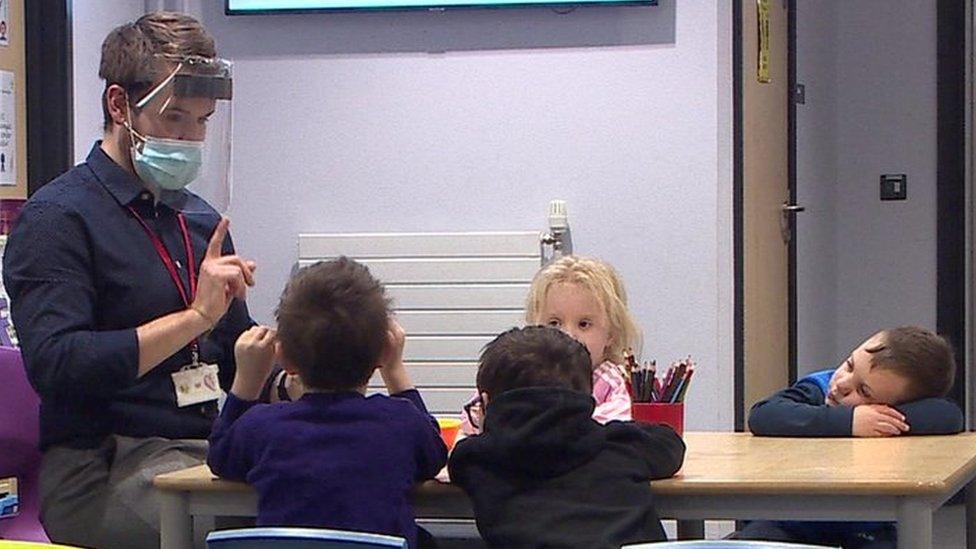
- Published21 May 2021
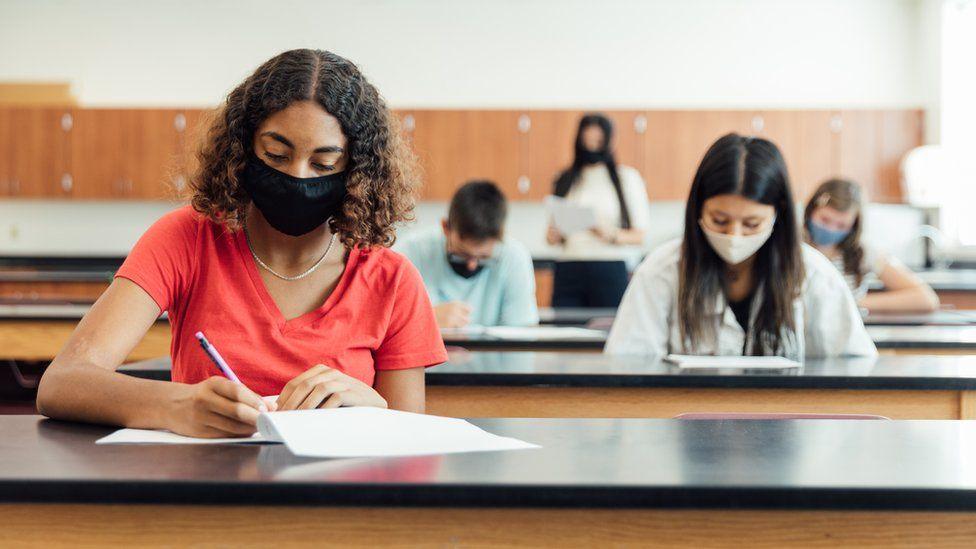
- Published10 June 2021
